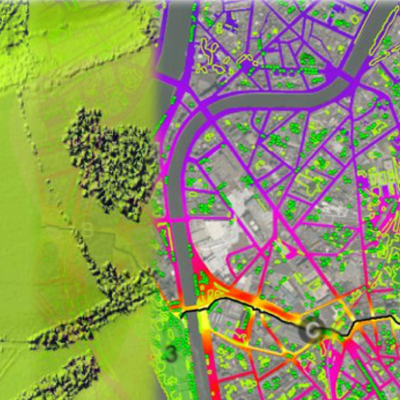- UKRI’s Future Leaders Fellowships aim to address major global issues and commercialise innovation
- Cranfield academic’s project will bring all human activity contributors to global warming into the same framework
- Easy-to-use tools will help decision makers turn climate ambition into effective action
A Cranfield University lecturer has been named as one of the most promising science and research leaders in the UK for her project to develop a more holistic and accurate approach to assessing what contributes to climate change.
Dr Michelle Cain, Lecturer in Environmental Data Analytics in the Centre for Environmental and Agricultural Informatics, has been awarded funding by UK Research and Innovation’s (UKRI) flagship Future Leaders Fellowships programme which aims to address major global issues and commercialise innovation.
The project, ‘Reframing non-CO2 climate mitigation approaches to limit global warming’, will bring all those human activities that contribute to global warming – such as short- and long-lived greenhouse gas emissions, aerosol emissions and land use changes – into the same framework, based on how much they raise or lower the temperature.
Currently, the metric-based approaches to represent CO2-equivalence consistently fail to accurately represent the impact short-lived pollutants like methane have on temperature. Dr Cain’s work will accurately capture the impact of reducing (or increasing) emissions of such gases on global warming levels.
Agriculture key to non-CO2 climate mitigation
Agriculture will be a key focus of the research, as it is responsible for a large proportion of the world’s methane and nitrous oxide emissions. Asan essential sector for food security it represents acritical factor for non-CO2 climate mitigation.
Dr Cain said: “Climate science is well understood and governments worldwide have committed on paper to reducing emissions in order to limit global warming. My aim is to help decision-makers turn that ambition into action with accurate tools, in particular for climate pollutants other than carbon dioxide, which have been less accurately represented in many analyses.
“The programme distills our understanding of the climate system into easy-to-use tools which can help with real-world decision making. By putting all greenhouse gases on an equal footing, trade-offs can be assessed in sectors such as agriculture, which generates methane and nitrous oxide emissions, but contributes little to carbon dioxide emissions.”
Facilitating analysis and decision making
The web-based tools developed will mean that government decision makers and environmental policymakers can accurately evaluate the impact of different actions on temperature over different timescales. Unless decision makers are using climate models, which they fund through their own researchers, to simulate mitigation actions, or have their own analysts, this is currently not available to them.
The research will initially focus on the largest two contributors to current warming of the non-CO2 pollutants – methane and nitrous oxide – but will also consider aerosol, CFCs and their replacement HFCs, and other factors such as albedo (how reflective a surface is) and land-use changes
The project will involve collaboration with partners in Japan and New Zealand, along with colleagues at Cranfield, including the Sustainability Group in Cranfield School of Management.
UKRI Chief Executive, Professor Dame Ottoline Leyser, said: “The Future Leaders Fellowships provide researchers and innovators with the freedom and generous long-term support to progress adventurous new ideas, and to move across disciplinary boundaries and between academia and industry.”
The UKRI Future Leaders Fellowship scheme helps universities and businesses in the UK recruit, develop and retain the world’s best researchers and innovators, regardless of their background. Researchers can apply for substantial long-term funding to support their research or innovation and develop their careers, with each fellowship lasting four to seven years.
Notes for editors
About UKRI
UK Research and Innovation works in partnership with universities, research organisations, businesses, charities, and government to create the best possible environment for research and innovation to flourish. We aim to maximise the contribution of each of our component parts, working individually and collectively. We work with our many partners to benefit everyone through knowledge, talent and ideas.
Operating across the whole of the UK with a combined budget of more than £7 billion, UK Research and Innovation brings together the seven research councils, Innovate UK and Research England.
About Cranfield University
Cranfield University is a specialist postgraduate university that is a global leader for education and transformational research in technology and management.



